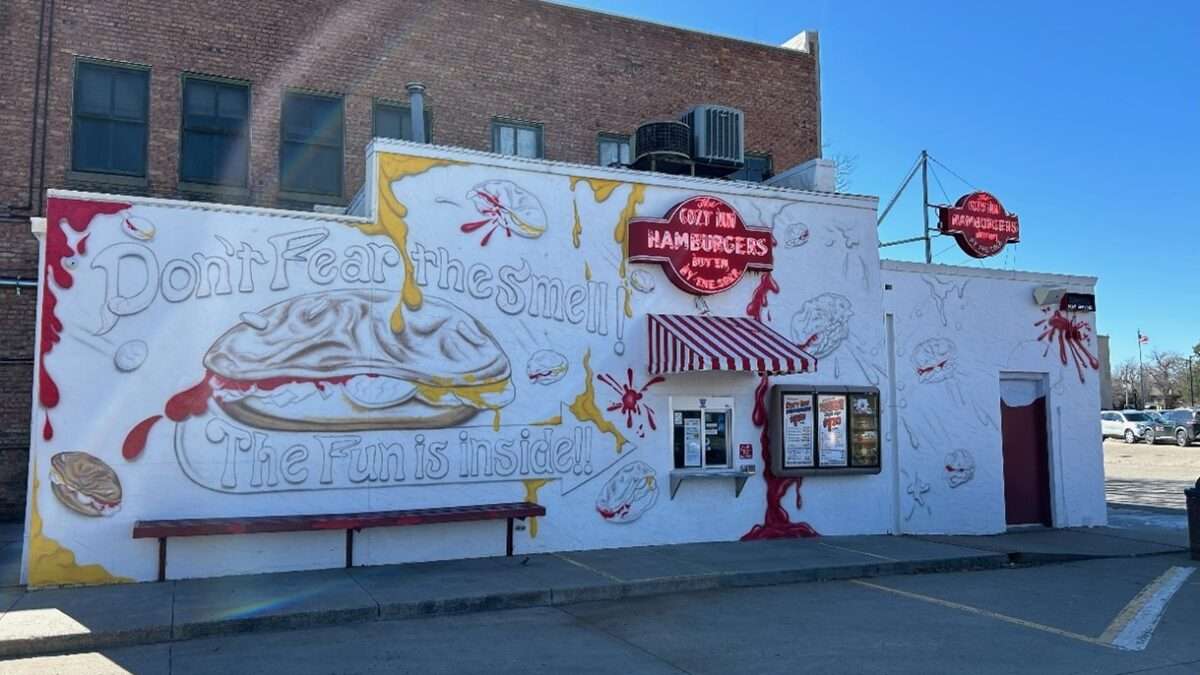Sole source contracting is the sort of thing government agencies should seek to avoid. In some cases, it’s impossible, but most spending should be open to bidding to help ensure the government isn’t spending more than it has to — or worse, hooking up contractor buddies Mob-style.
There’s a whiff of impropriety in all of this, but it may be imaginary. However, it’s still worth examining more closely, as the Associated Press has done here. School shootings just aren’t going to go away here in the United States, so it’s understandable that legislators and educators are exploring their options. But what’s detailed in this article suggests several things, most of which aren’t exactly great.
Kansas could soon offer up to $5 million in grants for schools to outfit surveillance cameras with artificial intelligence systems that can spot people carrying guns. But the governor needs to approve the expenditures and the schools must meet some very specific criteria.
The AI software must be patented, “designated as qualified anti-terrorism technology,” in compliance with certain security industry standards, already in use in at least 30 states and capable of detecting “three broad firearm classifications with a minimum of 300 subclassifications” and “at least 2,000 permutations,” among other things.
Only one company currently meets all those criteria: the same organization that touted them to Kansas lawmakers crafting the state budget. That company, ZeroEyes, is a rapidly growing firm founded by military veterans after the fatal shooting at Marjory Stoneman Douglas High School in Florida.
The first thing worth closer observation is this part of the AP’s reporting: “Only one company currently meets all those criteria.” That company would be ZeroEyes, which has benefited from similar legislation and similar grants across the country.
Again, it’s understandable that if the goal is protecting children, legislators and schools are going to want the best product. At this point, that would appear to be ZeroEyes. It does have competitors but almost none of them are able to meet the very specific criteria that keep showing up in new gun detection tech grant legislation.
ZeroEyes also appears to be the only firm qualified for state firearms detection programs under laws enacted last year in Michigan and Utah, bills passed earlier this year in Florida and Iowa and legislation proposed in Colorado, Louisiana and Wisconsin.
On Friday, Missouri became the latest state to pass legislation geared toward ZeroEyes, offering $2.5 million in matching grants for schools to buy firearms detection software designated as “qualified anti-terrorism technology.”
This sort of thing would appear to be outside the boundary of normal coincidence. And yet, the co-founder of ZeroEyes told AP “We’re not paying legislators to write us into their bills.” That’s probably true. The days of garishly showing up at a lawmaker’s office with a briefcase full of money are (mostly) behind us. But the ability to influence not just the direction of legislation, but the creation of legislation is something industries and their lobbyists have been capable of accomplishing without having to actually “pay” anyone to do anything.
Now, it could be that ZeroEyes just got out in front of its competitors to meet a bunch of requirements that its competitors couldn’t. Or it could be that it chose to approach regulators, rather than legislators, to help ensure the specifications and requirements more closely matched its product than any of its rivals.
Or, it’s just a coincidence ZeroEyes is seemingly the sole beneficiary of recently crafted legislation that provides funding to schools to buy tech from a single source.
Given all of this, it would seem most likely ZeroEyes is persuading legislators these laws need to be written and these funds need to be available to protect children from school shootings. That only its product meets the requirements is a happy coincidence, rather than the result of loutishly dangling campaign contributions over malleable legislators’ heads.
America is a business more than it’s a country. These new laws are now forcing taxpayers to fund tech that hasn’t exactly shown it can handle the responsibilities expected of it. Given the numerous options available to legislators, law enforcement, and a small army of government agencies (including social services and mental health professionals), is it really the best idea to start throwing money at the shiniest option, especially when only a single provider meets the criteria… which means it doesn’t need to be all that shiny to begin with?
Here’s what the chairperson of the National Council of School Safety Directors (Jason Stoddard) had to say about ZeroEyes and its legislation-enabled takeover of the AI gun detection market:
The super-specific Kansas bill — particularly the requirement that a company have its product in at least 30 states — is “probably the most egregious thing that I have ever read” in legislation…
[…]
When states allot millions of dollars for certain products, it often leaves less money for other important school safety efforts, such as electronic door locks, shatter-resistant windows, communication systems and security staff, he said.
“The artificial-intelligence-driven weapons detection is absolutely wonderful,” Stoddard said. “But it’s probably not the priority that 95% of the schools in the United States need right now.”
That’s probably the most salient point, whether or not ZeroEyes’ hands are completely clean. Most AI in use today is still a bit wonky. Facial recognition tech has been around for years, but most products still suffer from the same issues, even though they’ve had plenty of time to address things like built-in bias or, you know, just assuming any images they find laying around the ‘net are free for the taking (and training).
And as for the co-founder’s claims it does not buy legislators or legislation, it hardly seems to matter. Purchased or not, legislators are willing to make ZeroEyes a sole source for in-school gun detection tech. As the AP reports, the company put on a presentation for state legislators earlier this year. Whatever else went on between ZeroEyes and Kansas legislators, this was (almost!) the end result:
Kansas state Rep. Adam Thomas, a Republican, initially proposed to specifically name ZeroEyes in the funding legislation. The final version removed the company’s name but kept the criteria that essentially limits it to ZeroEyes.
Yeah, that’s not a great look, even if ZeroEyes stayed out of the law-crafting process. Sadly, another Republican on the K-12 budget committee was even more voracious in the defense of ZeroEyes as a sole source provider, telling her fellow legislators the state “couldn’t afford the delays of a standard bidding process.” Whew.
All of this may just be coincidence. But given the reach of ZeroEyes and the number of states that have passed similar legislation that solely benefits the only company that (equally coincidentally!) can match specific criteria enumerated in these bills, there’s reason to doubt every bit of this is on the up-and-up.



